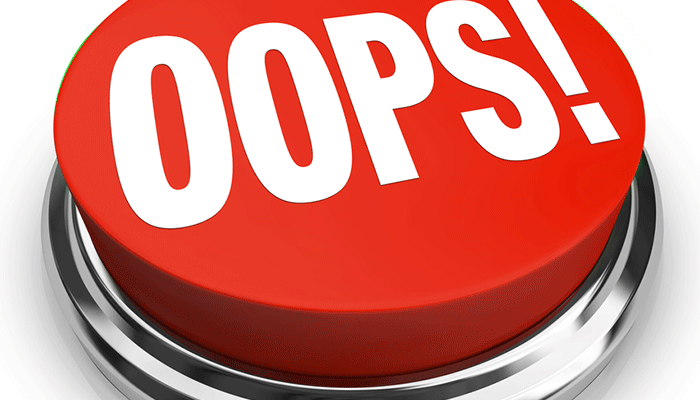If we are going to be completely honest, we all make mistakes and when it comes to trading, we have made many, and we are sure that you have too. Some of them are not too bad, some of them though, are pretty horrible and have thrown off our trading quite a bit. If you look back, we are sure that there are some mistakes that you have made in the past, especially when just starting out that you are most likely not too proud of. We are going to be looking at some of the horrible mistakes that we have made and that other trades have made during their forex trading careers.
Spending Too Much Time Trading
One that you probably would not expect to see, but spending too much time can be just as bad as spending not enough. The majority of traders have other things in their life too, maybe a job, maybe a daily, anything else that gives you some form of responsibility. What you do not want to do is to use every minute that you have spare, or even to take away from the other things in your life. This can lead to a lot of problems, we have known traders to lose their job or to lose their families just from spending too much time on their trading. Do not let this happen to you, make sure that you divide your time up between the things that are important and don’t let trading take over.
Continuing to Trade a Losing Strategy
A lot of traders have a lot of pride, they like to think that they are correct, while it is good to be proud of what you do, it is not good to let that pride cloud your judgment. If you are trading a strategy that is losing, why would you want to continue doing it? Maybe you believe that it will eventually work, maybe you blame the markets, but one thing is for sure, these traders do not want to admit that maybe their strategy just doesn’t work at the moment. If something is not working, work out why and make changes, do not keep trying to force it to work or trading and waiting, you will only end up losing money, so you need to admit when something isn’t working and then make a change.
Trading Without Stop Losses
This one is common amongst both new traders and experienced ones and it has the same effects on the accounts of the traders and that is that they will eventually blow. Stop losses are one of the first and most simple forms of risk management that you should learn about and certainly use. The stop loss is there to protect your account, it will automatically close the trade when it reaches a certain level, yes it will lose in a negative, but it will be protecting your account. It also allows you to properly implement your risk to reward ratio. Ensure that you are using stop losses with every trade, every single trade, and your account will be a lot safer, without one, a single trade can blow even the largest of accounts.
Trading with More Than You Can Afford
One of the things that you will always be told is that you should never trade with more than you can afford to lose, what this means is that if the money that you are using is needed for something else, like bills, rent, or food, then you should not be using it. As soon as you use this money you are basically saying that you may not be able to pay the rent this month, not a situation that you want to be in. Even worse are the people who are borrowing money, getting a loan just for the purpose of trading it. This is not something that you want to do, do not put yourself into debt just to be able to trade. You should only trade what you can afford to lose, money that won’t affect your life if you lose it. Not only does it help protect your finances and life, but it also helps you to reduce the levels of stress that would come with potentially losing money that you need.
Trading It All
Emotions can have a huge effect on our trading, especially when we come across losses. When we experience those losses, we sometimes want to win it back, we do this by placing larger trades, or more trades that are not in line with our strategy for risk management. This is not something that you want to do and it is known as chasing your losses. You place larger trades in order to try and win the money back, but what happens when that trade also loses? You will end up placing an even larger one, then larger until eventually you cannot afford to make any others and you have pretty much blown your account. Avoid doing this, it is not smart and lots of people have actually gone bankrupt trying it.
Guessing the News
News events can be very lucrative, you can make a lot of money from them if you get things right, especially things like the Non-Farm Payroll announcements. The problem is that if you get it wrong, you can lose a lot of money. What some people try to do is to guess the direction that the news will make the markets move, this is never a good idea. The news can be unpredictable, the markets also do not always move in the direction that the news suggests it should. With news events the markets can jump quite a lot, so even with stop losses in place the markets can actually jump past them and you can end up losing more than you expected. Avoid trading the news unless you really know what it is that you are doing, it is far safer to avoid it than to guess at it.
Trading Without a Plan
This one is more relevant to those that are just starting out in their trading careers. Trading without a plan basically means that you are placing trades without any reason, this is the part of trading that could best be compared to simple gambling. You need to use a plan, otherwise, ask yourself why you are placing the trade that you are. If you cannot answer it properly, with analysis and things like that, or you just simply say because you think it will win, then you should not be placing it. Do not place trades without a plan, at any time in your trading career.
Those are some of the horrible mistakes that you and a lot of other people may be making. They can have a real negative effect on your trading or your life as a whole, try and avoid doing them at all costs. If you are currently doing one and can recognize that, then see what you can do to help yourself get out of doing it, you will see some huge improvements to your trading results and even possibly your personal life too.



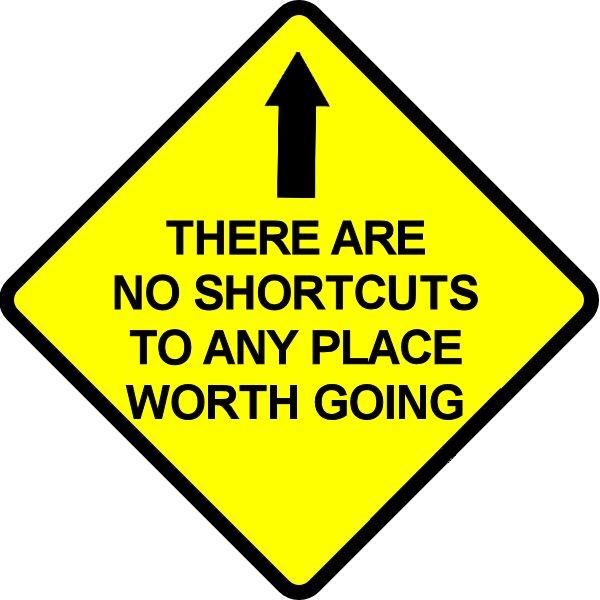 It can be very easy to fall into the trap of taking shortcuts, when we say shortcuts we are referring to the rules and the methods that you use to place trades, your trading plan will have some rules on it, these rules will dictate how and when you place your trades. These can be pretty small shortcuts, like not waiting for additional confirmation, or they can be pretty significant ones like trying to speed up the process by not placing a stop loss with a trade. While they may not seem big, those little things like not placing a stop loss could potentially end up causing some quite considerable losses which will, in turn, put your overall trading results back quite a bit. It is important that you try to avoid these shortcuts, some may work, but when they don’t they can have big effects. Ensure that you stick to your rules and that you do them fully, not doing just half and hoping things are ok, that extra minute that you save is not worth the additional risks involved.
It can be very easy to fall into the trap of taking shortcuts, when we say shortcuts we are referring to the rules and the methods that you use to place trades, your trading plan will have some rules on it, these rules will dictate how and when you place your trades. These can be pretty small shortcuts, like not waiting for additional confirmation, or they can be pretty significant ones like trying to speed up the process by not placing a stop loss with a trade. While they may not seem big, those little things like not placing a stop loss could potentially end up causing some quite considerable losses which will, in turn, put your overall trading results back quite a bit. It is important that you try to avoid these shortcuts, some may work, but when they don’t they can have big effects. Ensure that you stick to your rules and that you do them fully, not doing just half and hoping things are ok, that extra minute that you save is not worth the additional risks involved.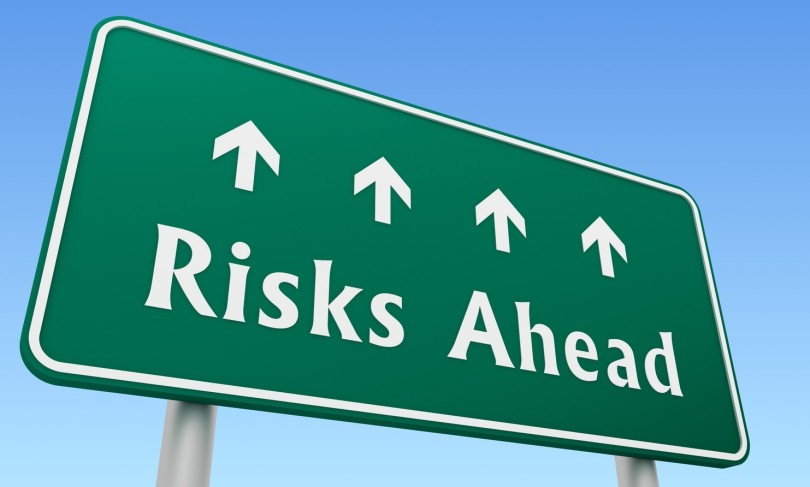 A lot of people don’t seem to stick to their risk management plans, at least not entirely. Your plan will have your
A lot of people don’t seem to stick to their risk management plans, at least not entirely. Your plan will have your  Something that we are all probably guilty of, we love to trade, but sometimes it is better not to and when you are tired, that can be one of those reasons. When we are tired we do not have the same concentration levels, we are far more easily distracted and we are far more likely to make mistakes. Yet we love trading so much or feel that we need to trade that sometimes it doesn’t matter how tired we are, we will still trade. This is where a lot of mistakes will be made, things missed out and potential losses gained. If you’re feeling tired, or that you cannot concentrate fully, then you should try and avoid trading as a whole, including analysing the markets and especially placing any trade.
Something that we are all probably guilty of, we love to trade, but sometimes it is better not to and when you are tired, that can be one of those reasons. When we are tired we do not have the same concentration levels, we are far more easily distracted and we are far more likely to make mistakes. Yet we love trading so much or feel that we need to trade that sometimes it doesn’t matter how tired we are, we will still trade. This is where a lot of mistakes will be made, things missed out and potential losses gained. If you’re feeling tired, or that you cannot concentrate fully, then you should try and avoid trading as a whole, including analysing the markets and especially placing any trade. Distractions are horrible things when it comes to trading, pretty much anything can be a distraction. When you set up your trading officer room, you should have ensured that a lot of the things that could cause you distractions were removed. Things like a TV, games consoles, things like hats, things that can take your attention away from your trading. Ensure that others know that you are trading and that you do not wish to be disturbed. Distractions can very easily cause you to miss things or to place trades incorrectly, so it is vital that you eliminate as many as you can.
Distractions are horrible things when it comes to trading, pretty much anything can be a distraction. When you set up your trading officer room, you should have ensured that a lot of the things that could cause you distractions were removed. Things like a TV, games consoles, things like hats, things that can take your attention away from your trading. Ensure that others know that you are trading and that you do not wish to be disturbed. Distractions can very easily cause you to miss things or to place trades incorrectly, so it is vital that you eliminate as many as you can.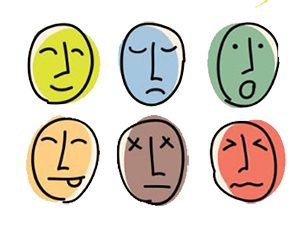 Emotions are wonderful things, they can make us feel amazing but at the same time, they can make us feel pretty rotten. One thing that we want to avoid is trading while our emotions are pretty high. They can cause us to want to do things that go against our trading strategy, things like greed and overconfidence can make us trade large or more often, while things like anxiety and fear can make us not want to trade at all. When we have our emotions high or you can feel something building up then it is important that you take a break, step away, clear your mind and come back when those emotions have died down.
Emotions are wonderful things, they can make us feel amazing but at the same time, they can make us feel pretty rotten. One thing that we want to avoid is trading while our emotions are pretty high. They can cause us to want to do things that go against our trading strategy, things like greed and overconfidence can make us trade large or more often, while things like anxiety and fear can make us not want to trade at all. When we have our emotions high or you can feel something building up then it is important that you take a break, step away, clear your mind and come back when those emotions have died down.


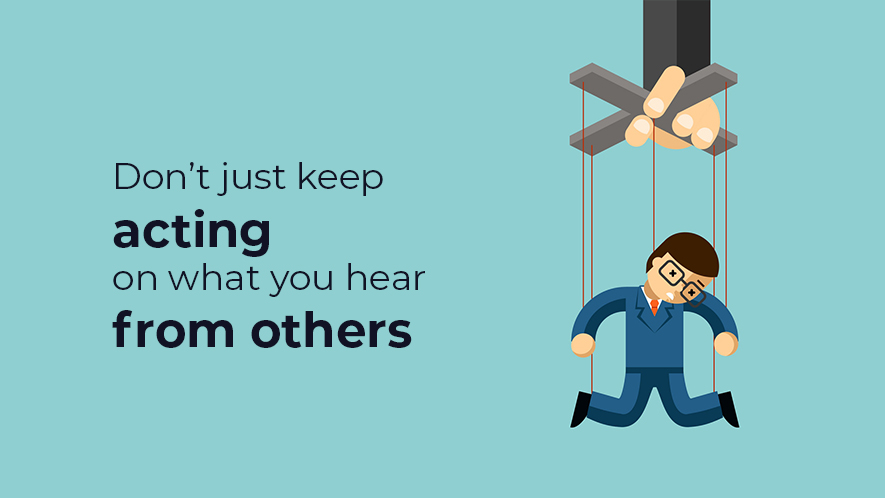
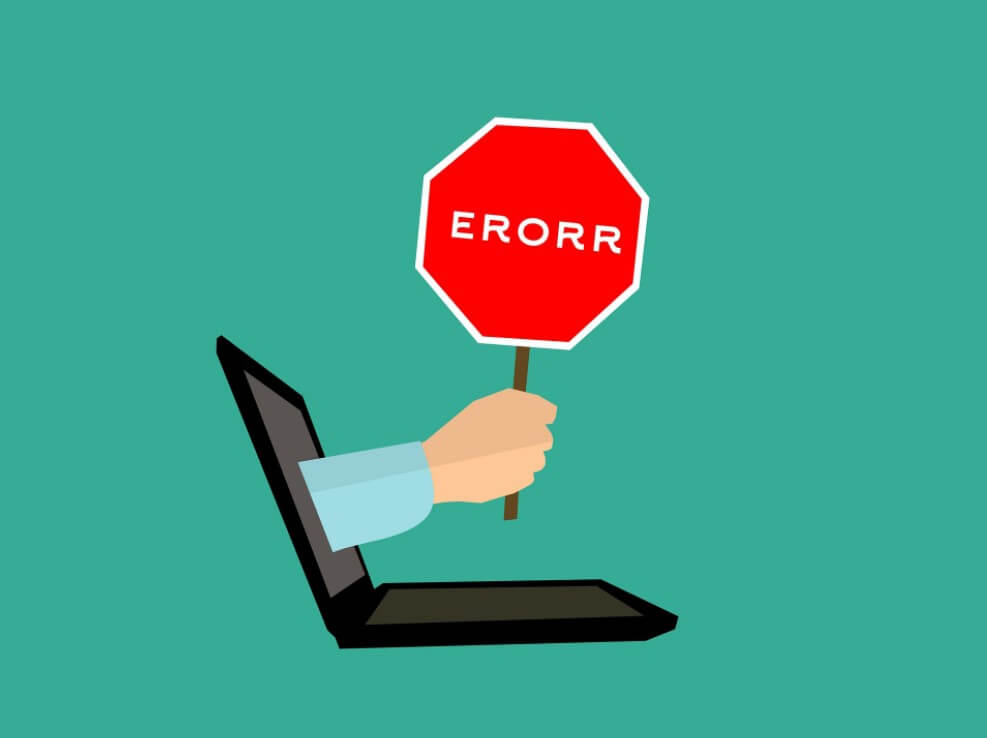





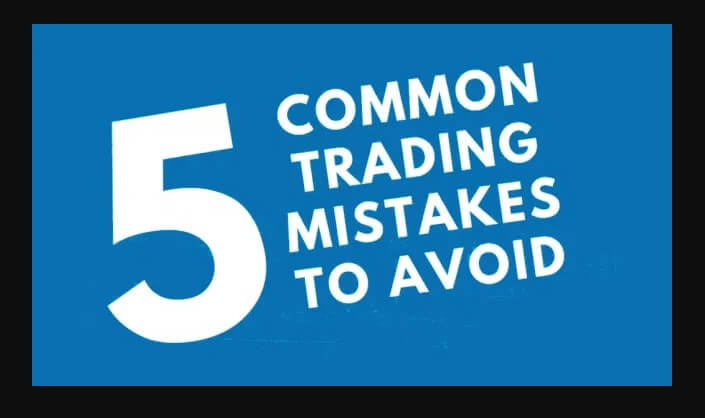

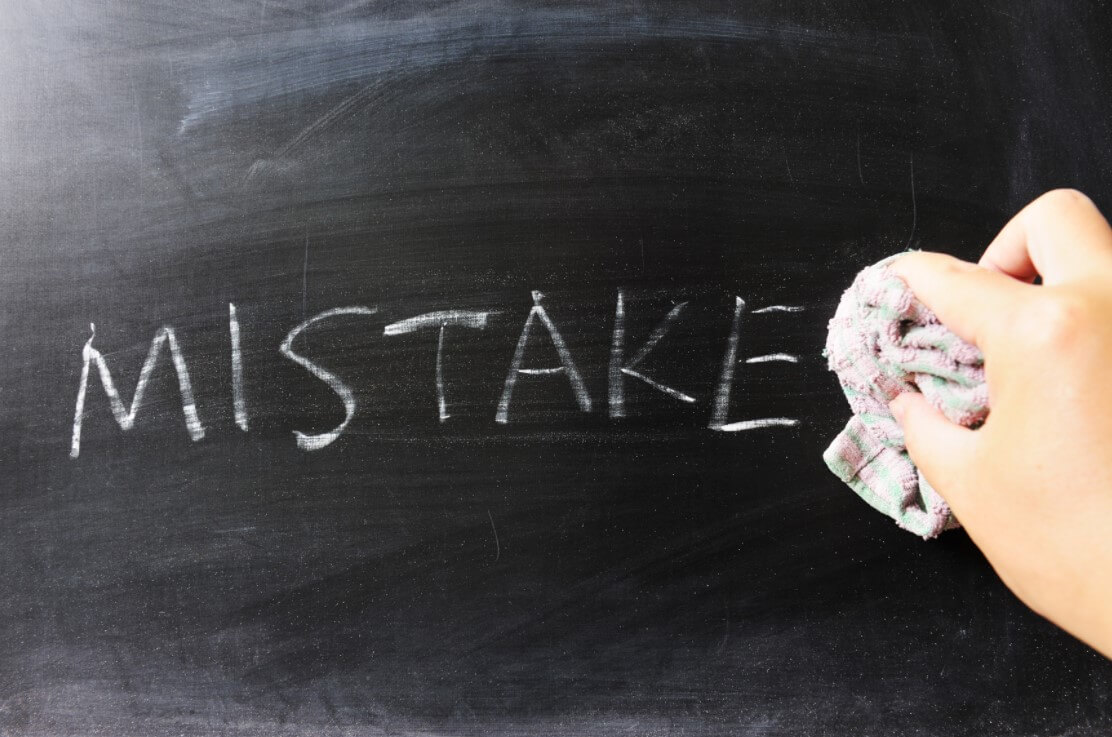


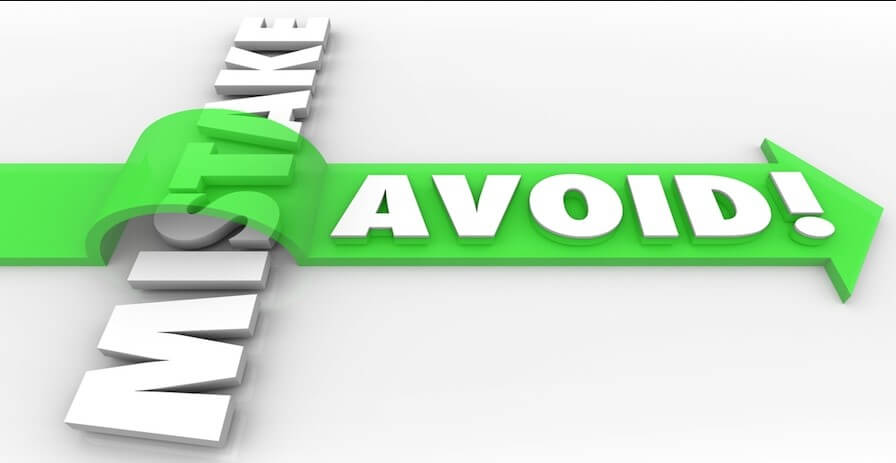
 You can’t learn everything you need to know overnight. Many beginners spend a little bit of time reading articles or conducting research, but they jump into trading too quickly. If you don’t use the proper risk management and a good trading strategy, you’ll never make money. Being well-educated in this field will help to set you up for success.
You can’t learn everything you need to know overnight. Many beginners spend a little bit of time reading articles or conducting research, but they jump into trading too quickly. If you don’t use the proper risk management and a good trading strategy, you’ll never make money. Being well-educated in this field will help to set you up for success.